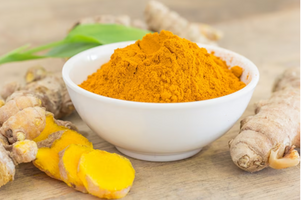
by Vaidya Ahana Shekhar
Learn about an Alcohol Addiction and Disorder
The incapability to control drinking due to both a physical and emotional dependence on alcohol with complete awareness of the negative consequences to be dealt with. Physical or emotional dependency ignites with the belief of not being able to deal with things that stresses the mind, be it professional or personal life. Hence one's dependency on alcohol onsets.
Alcohol is considered to be one of the most frequently consumed substances in present society, used by millions of people throughout the States and worldwide on a regular basis. Ayurveda states that when alcohol (madya) is consumed in the right quantity and right manner, will provide numerous benefits, but if consumed in excessive quantity it acts as a poison. Approximately 14 million Americans meet the diagnostic criteria for alcohol abuse or alcoholism. Ayurveda has given alcohol (madya) consumption significant importance in Charaka Samhitha where it elaborates the consequence of alcohol consumption, its effects, and treatment in case of excessive intoxication.
Before we jump into other aspects of alcohol, let us understand why people get drunk way over their capacities. It starts off as a fun or social activity due to peer pressure or pure curiosity, later frequency increases as you start liking the light-headedness, stress, anxiety-free feeling that alcohol impacts on your body and mind. As time passes and life gets tougher, alcohol turns out to be your escape and before you realize it, you are an alcoholic.
Qualities of Alcohol
Since ancient times, drinking fermented beverages have always been used to symbolize celebration and happiness as it brings us together to enjoy few of life’s greatest moments. Some of our cherished memories consist of getting drunk and having fun. Agreed, we all deserve to have some fun now and then (responsibly, of course) but when the quantity of alcohol we consume increases so will the effect on our system. Alcohol is said to be a mixture of ethanol (an intoxicating agent in fermented and distilled liquors) and water that causes a state of drunkenness when consumed. Slow habitual drinking is what finally leads to addiction.
Alcohol has few qualities which explain its quick action on the mental and physical well-being of the human body. It undergoes digestion and absorption swiftly and spreads all over the body at the same pace (laghutha and vyavayi), known for its fast action, it enters every minute channel of the body (ashu and sukshma), and into deep body tissues loosening up the joints and tissues of our body (teeksnathwa and vikasi), it is sour in taste (amla rasa) and is hot for the body or burns when gulped (ushnathwa).
Ayurvedic Health Benefits, Effects Of Alcohol
Liquor is advised to be consumed according to the guidelines (depending on the doshic constituency of your body), in the required amount of quantity, at a suitable time along with advised diet, as per the capacity of one's tolerance ability - it provides numerous benefits. It is considered to be -
- a good appetizer
- provides charming and calm state of mind and body
- improves voice and complexion
- increases strength and nourishment
- fights insomnia
- relieves constipation
- acts as an aphrodisiac
- and eradicates phobias, grief, pain, or tiredness if any.
The Ayurvedic Perspective on Alcohol
In Ayurveda, acharyas have mentioned the right manner in which alcohol (madya) should be consumed for the benefits to be relished. It is advised to drink alcohol after cleansing and purifying your body and mind, while wearing hygienic and scented clothes, sitting in a comfortable place, and position and consume unctuous and hot food substances before drinking.
Depending on each individual's body constitution (three doshas - vata, pitta, and kapha) and metabolic strength, the method of consumption of alcohol differs:
- For vata prakriti person - body massage (abhyanga), bathing, fumigation(dhupa), well dressed in scented clothes, and consumption of unctuous hot foods are advised before drinking alcohol.
- For pitta prakriti person - cooling regimens and foods should be followed along with sweet(madhura) foods.
- For kapha prakriti person - warm regimens are advised and including pepper or any spicy substances in your diet is beneficial.
Type of alcoholic drinks to be consumed
Alcohol is available in different types based on their fermentation and distillation procedures along with other ingredients like cereals, fruits, herbs, sugar, etc added within. Ayurveda explains what type of drink should one consume based on their body type or body constitution (deha prakriti)
- For Vata prakriti - it is advised to consume alcohol made out of jaggery (Rum) and wheat (Beer, Whiskey) as it helps pacify vata and increases metabolism.
- For Pitta prakriti - Alcohol prepared from honey (Mead) is advised.
- Kapha prakriti - Alcohol prepared from grapes (Wine, Brandy, Vermouth) is advised.
- Keep in mind to make sure you are aware of your deha prakriti (body constitution) and analyse which dosha is prime predominant and consume accordingly.
Stages of alcohol intoxication
Alcohol intoxication (madya vibrama) is defined as entering a state of mental pervasion due to excess consumption of alcohol which causes excessive exhilaration, an increase in sexual desires, and upheaval in the mental and physical state of a person. This occurs in three stages -
- First stage - A state of complete euphoria, invoking in vocal or instrumental music, memory and intellect enhanced, clear speech and activity, increased sexual virility and pacifies sleep disorders.
- Second stage - Memory gets clogged, indistinct speech and activity, continuous rambling, confusion, impaired perception, loss of balance, nausea.
- Third stage - disorientation, complete confusion, staggered walking or unable to stand up, blacking out, fails to recognize people or the place around, loss of consciousness.
Consuming alcohol is always fun, but safer if you know your threshold capacity and tolerance. To be on the safer side, stop drinking before you reach the second stage, if you find yourself in the second or third stage often, you may need help.
Complications of Alcohol consumption
Ayurveda states that alcohol acts as a poison if consumed after being exhausted by physical exercise or excessive dryness in the body. Other complications would be loss of consciousness, memory loss, perplexity, grief – unresolved trauma might resurface, rage, psychosis, violent or suicidal acts, risky sexual behaviours – risk of contracting STD’s or unintended pregnancies, miscarriages - if a pregnant women consumes alcohol, High blood pressure, dementia, affects the social and personnel wellbeing, poor learning and memory capacities, mental health conditions like depression and anxiety, liver and heart diseases, stroke, epileptic conditions etc
Ayurvedic Management of excessive Alcohol consumption
Since pitta and vata are the two doshas that aggravate in excessive consumption of alcohol, we focus on pacifying those two doshas first, by administering coolants (sheetala) and rejuvenating (rasayana) diet and regimens along with sweet (madhura) and astringent taste foods priorly.
Line of treatment for excessive alcohol intoxication -
- Therapeutic vomiting by saltwater intake or yastimadhu phanta (only if the person is fit for therapeutic vomiting)
- Restoration (santarpana) - by administering few pacifying food items like dates, dried raisins, pomegranate juice
- Therapeutic purgation (virechana) followed by medicated enema (basti)
- Few foods like Amla, lemon water, beet juice, water hyssop (brahmi), winter cherry (ashwagandha), and ash gourd can be consumed as help in relaxing the mind and body and works as anti-craving drugs.
The lines of treatment for alcohol addiction according to Ayurveda:
- Use of anti-craving and sedative drugs
- Panchakarma procedures
- Cognitive-behavioural therapy
- Motivational counselling
Some ayurvedic formulations -
- Kharjuradi mantha - helps in alcohol withdrawal
- Draksharishta - Alcohol dependence and withdrawal
- Shreekandasava - alcohol intoxication
- Ashwagandarishta - Anti craving effect
Some home remedies -
- Consume plenty of water, rich in electrolytes and glucose to prevent dehydration (Do not give any caffeinated beverages)
- Drink lemon water
- Triphala choorna and Katuki in equal quantity is taken and mixed with honey - should be consumed for one week to reduce the complications caused due to intoxication.
Tips for reducing Alcohol intake
Quitting alcohol can be tough for a chronic user, therefore let us look into few tips on how we can gradually cut down alcohol intake -
- Limit at home drinking and on weekdays, save them for the weekends or getaways
- Spritz your wine
- Sip few amounts of water while you are drinking, to prevent dehydration
- Stick to non-alcoholic beverages that allows you to help release stress and anxiety
- Keep yourself distracted, do some fun activities, spend time with your family, work on that book that you have always wanted to write or that painting you wanted to do. It gets easier with time, remain consistent.
Excessive alcohol use is responsible for 88,000 deaths in the United States each year. Be it consuming excessive alcohol at once on a single occasion or chronic alcohol abuse, both are harmful to the body, do not ignore the warning signs of alcoholism. The next time you drink, know your tolerance capacities, and stay responsible.
Note: The information in this article is intended for your educational use only and is not a substitute for professional medical advice, diagnosis, or treatment. Always seek the advice of your physician or other qualified health providers with any questions you may have regarding a medical condition and before undertaking any diet, supplement, fitness, or other health programs.





